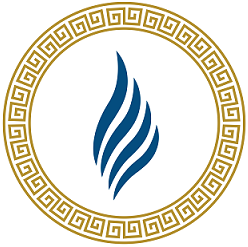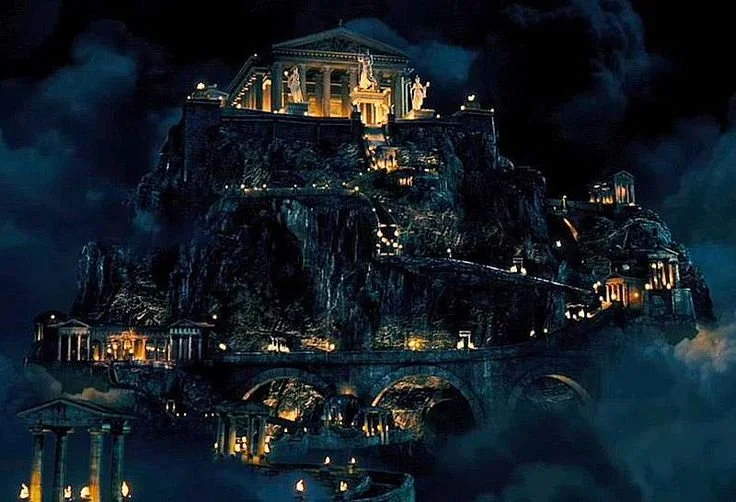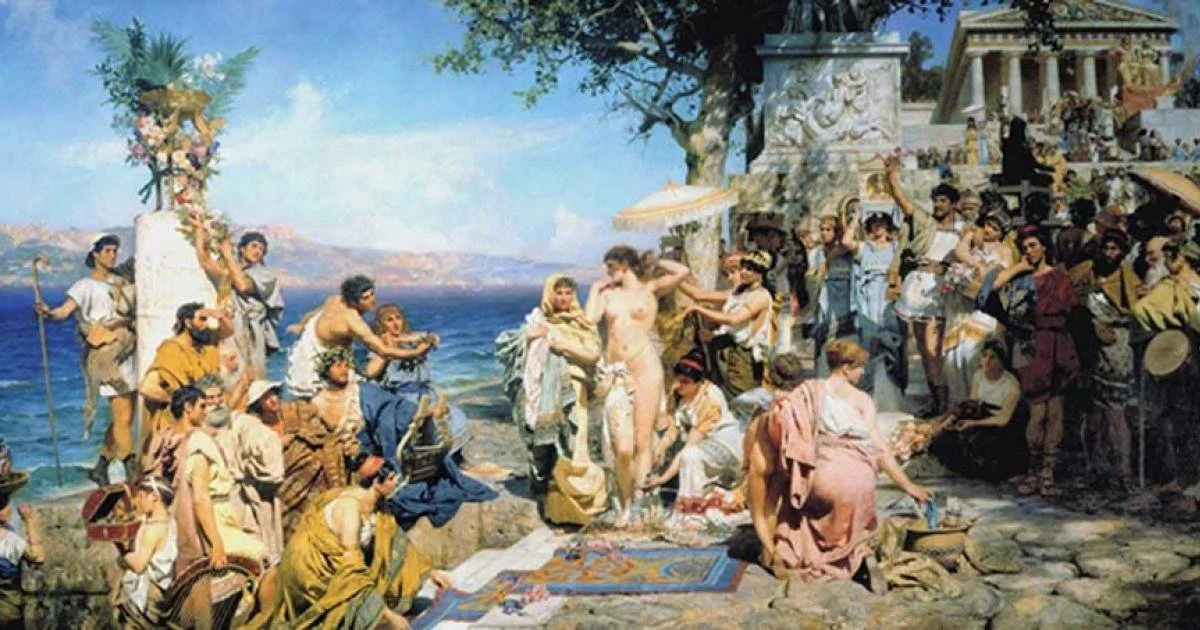When we think of Ancient Greek mythology, names like Zeus, Hera, Poseidon, and Athena typically come to mind. These major deities dominate the pantheon, but the rich tapestry of Greek mythology includes many lesser-known gods and goddesses whose stories are just as intriguing. These deities, often overshadowed by the Olympians, played important roles in the lives of the ancient Greeks, influencing everything from daily activities to local traditions.
This article delves into the myths and significance of some of these forgotten gods, exploring their unique attributes and the reasons they have faded into relative obscurity.
The Rich Diversity of the Greek Pantheon
The ancient Greek pantheon was vast and complex, with gods and goddesses governing various aspects of the natural world, human experience, and even abstract concepts. While the Olympian gods were worshipped across Greece and featured prominently in myths and rituals, many local or specialized deities were venerated in specific regions, cities, or households.
These lesser-known gods often filled roles that were more intimate and practical than those of the Olympians. They were invoked for specific purposes, such as ensuring a good harvest, protecting travelers, or overseeing childbirth. The ancient Greeks recognized the presence of divine forces in every aspect of their lives, from the grand to the mundane, and these lesser gods provided a means of connecting with the divine on a more personal level.
Hecate: The Mysterious Goddess of Magic and Crossroads
One of the most enigmatic figures in Greek mythology is Hecate, a goddess associated with magic, witchcraft, and the night. Unlike many of the Olympian gods, Hecate’s origins are somewhat obscure. Some myths suggest she was a Titaness, the daughter of Perses and Asteria, while others link her to the underworld due to her connection with ghosts and the dead.
Hecate was often depicted as a triple goddess, representing three aspects: the maiden, the mother, and the crone. She was believed to have dominion over the earth, sea, and sky, and was frequently invoked at crossroads, which were considered liminal spaces where the physical and spiritual worlds intersected.
Despite her association with dark magic, Hecate was also a protective deity. She was called upon to safeguard homes, particularly at doorways, and her image was often placed at entrances to ward off evil spirits. Her role in the myth of Demeter and Persephone, where she aids Demeter in searching for her daughter, further highlights her protective qualities.
Hecate’s worship was particularly strong in rural areas and among those who practiced magic. However, her mysterious and somewhat fearsome nature led to her being less integrated into the mainstream religious practices of ancient Greece, and she remains a somewhat marginal figure in mythology today.
Asclepius: The God of Healing and Medicine
Asclepius is another god whose importance is often overlooked despite his significant role in ancient Greek religion and medicine. The son of Apollo and the mortal woman Coronis, Asclepius was the god of healing and medicine. According to myth, he was trained in the art of healing by the centaur Chiron and became so skilled that he could even bring the dead back to life.
Asclepius’s abilities eventually led to his downfall when Zeus, fearing that he would upset the natural order, struck him down with a thunderbolt. However, Asclepius was later deified, and his cult became one of the most widespread in the ancient world.
The worship of Asclepius was centered around healing sanctuaries known as Asclepieia, where the sick would come to be cured. The most famous of these was located in Epidaurus, but there were many others throughout Greece and the wider Mediterranean. Patients would sleep in a special hall called the abaton, where it was believed Asclepius would visit them in their dreams and offer cures or advice.
The symbol of Asclepius, a staff with a serpent coiled around it, remains a powerful emblem of medicine and healing to this day. Despite his significant influence on ancient and modern medicine, Asclepius is often overshadowed in popular accounts of Greek mythology.
Eris: The Goddess of Strife and Discord
Eris, the goddess of strife and discord, is a figure whose influence is felt throughout many myths, yet she remains relatively obscure. Eris is perhaps best known for her role in the events leading up to the Trojan War. According to myth, she was not invited to the wedding of Peleus and Thetis (the parents of Achilles) and, in retaliation, threw a golden apple inscribed with the words "to the fairest" among the goddesses Hera, Athena, and Aphrodite. This act of spite led to the Judgment of Paris and ultimately sparked the conflict that would destroy Troy.
Eris embodies the darker aspects of human nature, particularly the conflicts and rivalries that arise from envy and ambition. Her presence in mythology serves as a reminder of the chaos that can result from unchecked desires and the destructive power of discord.
While Eris is not a deity who was actively worshipped, her influence permeates many Greek myths. She represents the inevitable presence of strife in both the mortal and divine realms and serves as a counterpart to the more harmonious aspects of life governed by other deities.
Hypnos and Thanatos: The Twin Gods of Sleep and Death
Hypnos and Thanatos were twin brothers, sons of Nyx (the goddess of night) and Erebus (the god of darkness). They personified two of the most inevitable and universal aspects of human existence: sleep and death.
Hypnos, the god of sleep, was depicted as a gentle and benevolent deity, often portrayed as a young man with wings, carrying a horn from which he dripped sleep-inducing liquid onto mortals. He was responsible for bringing rest and relief to the weary, and his powers were considered essential for maintaining health and well-being. Hypnos lived in a dark cave where the river Lethe, the river of forgetfulness, flowed, symbolizing the connection between sleep and oblivion.
Thanatos, the god of death, was a more fearsome figure. However, unlike Hades, who ruled over the underworld, Thanatos represented a peaceful death. He was not a figure to be feared in the same way as other death gods; rather, he was seen as a necessary and natural part of life’s cycle. Thanatos was also depicted with wings, carrying a sword or a butterfly (a symbol of the soul) to signify the gentle separation of the soul from the body.
The duality of Hypnos and Thanatos highlights the Greek understanding of sleep and death as closely related states, both of which offered an escape from the troubles of the waking world. These gods were not widely worshipped, but their presence in mythology reflects the ancient Greeks' deep contemplation of life, death, and the mysteries of the human experience.
Hestia: The Overlooked Goddess of the Hearth and Home
Hestia, the goddess of the hearth, home, and domestic life, is one of the most important yet least celebrated deities in Greek mythology. As the first-born child of Cronus and Rhea, and the sister of Zeus, Poseidon, and Hades, Hestia held a unique position among the Olympians.
Hestia’s role was to maintain the fire at the center of every home and city, a task of vital importance in the ancient world, where the hearth was the heart of domestic and communal life. The fire she tended symbolized the stability and unity of the household and the state. In public temples and private homes alike, Hestia’s flame was never allowed to go out, signifying the continuity of the family and the community.
Despite her central role in both domestic and civic life, Hestia is often overshadowed by her more dynamic siblings. She chose to remain a virgin goddess, avoiding the conflicts and dramas that characterized the lives of other Olympians. As a result, she does not feature prominently in many myths, and her worship was quiet and unobtrusive, reflecting her nature as a goddess of peace and stability.
Hestia’s influence can still be seen in the traditions that place importance on the hearth and the home as symbols of security and comfort. Although she may not be as well-known as other deities, Hestia’s presence was felt in every Greek household, making her one of the most universally revered goddesses in the ancient world.
Rediscovering the Forgotten Gods
The lesser-known gods and goddesses of Ancient Greece offer a fascinating glimpse into the complexity and diversity of Greek mythology. These deities, while not as prominent as the Olympians, played crucial roles in the daily lives of the Greeks and contributed to the richness of their mythological traditions.
By exploring the myths and significance of these forgotten gods, we can gain a deeper understanding of the values, beliefs, and concerns of the ancient Greeks. These deities remind us that mythology is not just about grand stories and heroic deeds but also about the intimate and personal aspects of life that connect us to the divine.
In rediscovering these forgotten gods, we also reconnect with a broader and more nuanced view of Greek mythology, one that reflects the full spectrum of human experience and the many ways in which the Greeks sought to understand and navigate their world.









